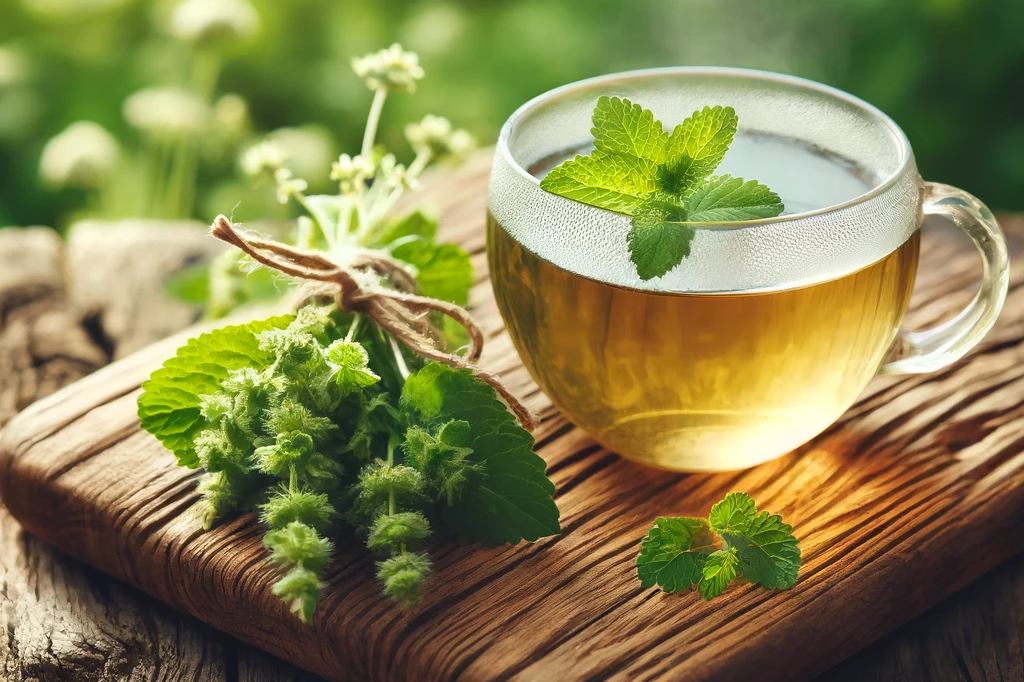Lavender tea

Lavender is a popular plant that not only looks and smells beautiful, but also has many health benefits. But what about dogs? Can you give your dog lavender tea? And if so, how much and how often? In this article, you'll find out everything you need to know about lavender tea for dogs.
What is lavender tea?
Lavender tea is a herbal tea made from the dried flowers of the lavender plant (Lavandula angustifolia). Lavender belongs to the labiate family and originally comes from the Mediterranean region. There are around 30 different types of lavender, but only true lavender is safe for dogs. Other varieties, such as spike lavender or lavandin, can be poisonous to dogs as they contain high levels of essential oils and other substances that are harmful to dogs.
Lavender tea has a pleasant floral taste and a calming aroma. It is often used as a home remedy for stress, insomnia, headaches or digestive problems.
What are the benefits of lavender tea for dogs?
Lavender tea can also have some benefits for dogs when given in moderation. According to some studies, lavender tea can have the following positive effects on dogs:
- It has a calming and relaxing effect on the nervous system and can therefore alleviate anxiety, nervousness or motion sickness.
- It has an anti-inflammatory and antibacterial effect and can therefore heal skin irritations, itching or wounds.
- It has an antispasmodic effect and promotes digestion and can therefore reduce flatulence, diarrhea or stomach pain.
- It strengthens the immune system and can thus prevent or fight infections.
What are the disadvantages of lavender tea for dogs?
Although lavender tea is healthy for dogs in small quantities, it should not be overdosed or given continuously. Too much lavender tea can also have negative effects on dogs, for example:
- It can lead to an allergic reaction, which can manifest as a skin rash, itching or difficulty breathing.
- It can lead to intoxication, which can be manifested by vomiting, diarrhea, tremors or convulsions.
- It can lead to hormonal imbalance, which can manifest itself in hair loss, weight loss or infertility.
How much and how often can I give my dog lavender tea?
If you want to give your dog lavender tea, there are a few things you should bear in mind:
- Only use real lavender (Lavandula angustifolia) and buy it in organic quality or collect it yourself.
- Prepare the tea fresh and allow it to cool before giving it to your dog.
- Use only a small amount of lavender flowers (about one teaspoon per cup of water) and don't let the tea steep for too long (about five minutes).
- Give your dog only a small amount of tea (about one tablespoon per kilogram of body weight) and not more than once a day.
- Monitor your dog for possible side effects after drinking the tea and always provide him with fresh water.
Lavender tea can be a natural and gentle way for dogs to relieve stress, pain or discomfort. However, it should only be given in small amounts and occasionally to avoid potential risks.
If you notice any signs of hypersensitivity or poisoning in your dog, you should see your vet immediately. We are not a substitute for a vet, but we try to be as accurate as possible. Every dog reacts differently and we recommend you get a second opinion or consult your vet if in doubt.
Stay healthy and take good care of your four-legged friend!😊
Similar to Lavender tea
Valerian tea is made from the roots of the valerian plant (Valeriana officinalis), which is native to Europe and Asia. The roots contain various ingredients that act on the nervous system and have a...
St. John's wort is a perennial plant that is native to Europe, Asia and North Africa. It has yellow flowers that bloom around June 24 (St. John's Day) and green leaves with small oil glands. The...
Chamomile tea is a herbal tea made from the dried flowers of chamomile. Chamomile is a medicinal plant that has been known and valued since ancient times. It grows in Europe and Asia, but also in...
Lemon balm tea is a herbal tea made from the leaves of lemon balm (Melissa officinalis). Lemon balm is a plant from the labiate family, which also includes mint, sage and thyme. Lemon balm has a...



